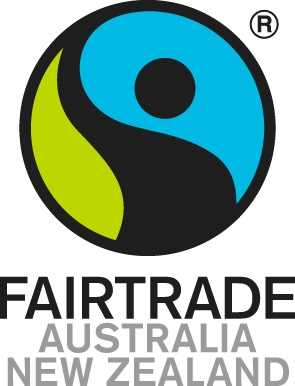MILAN – Fairtrade Australia and New Zealand (ANZ) and Coffex have joined together to produce a new international coffee blend especially for visitors to the Melbourne Food and Wine Festival (MFWF). The new coffee, called Coffex Fairtrade Festival Blend, has been roasted from Fairtrade coffee beans sourced from Papua New Guinea (PNG) and Mexico and blended especially for attendees to the Festival’s Longest Lunch and Brunch events this week.
Fairtrade Australia and New Zealand CEO, Molly Harriss Olson, is delighted that Fairtrade could work in this way with long-time Fairtrade licensee Coffex.
“We are always looking for new and innovative ways to promote Fairtrade licensees so when Coffex told us about their involvement with MFWF, we were excited to partner with them,” she says.
“The farmers Fairtrade works with in PNG and Mexico, are going through a difficult time right now – COVID-19 infections are still at worrying levels in both countries and many have lost their livelihoods because of the impacts of the pandemic. That means it’s the perfect time for us to be talking about the wonderful coffee they produce,” she says
Fairtrade works with ten different coffee farmer cooperatives in PNG and 43 in Mexico.
The producer organisations sell Fairtrade coffee to traders all over the world but anyone buying Fairtrade coffee must agree to pay the Fairtrade Minimum Price. This price is set based on the farmer’s cost of production and their need to be paid a living wage; which is often much higher than the market price.
In addition to the Fairtrade Minimum Price, the producers also receive the Fairtrade Premium for each pound of coffee they sell. This money doesn’t go directly to individual farmers but instead goes to the cooperative and the whole group decides together how that community development fund should be spent.
For example, the Fairtrade Festival Blend beans were partly sourced through the Highlands Organic Agriculture Cooperative in PNG. This group has used their Fairtrade Premium money for a number of life-changing projects including installing a gravity-fed water supply system that provides fresh and accessible water for five villages and nearly 5000 people.
“In exchange for being paid the Fairtrade Minimum Price and receiving the extra Premium, the farmers must adhere to some ‘standards’ around working conditions, governance, environmental management and gender equality. Fairtrade helps them do this by providing training and support. We also support them in developing the quality and range of products they have to sell,” says Ms Harriss Olson.
“To work with Coffex and the MFWF to showcase their amazing Fairtrade coffee is something of which we are very proud.”















